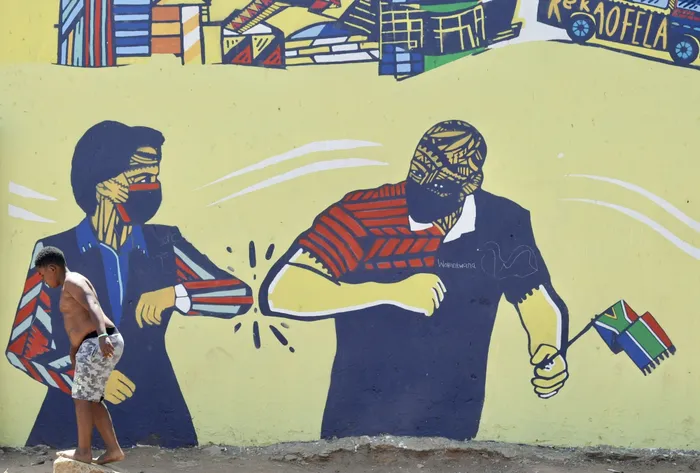
A new COVID-19 variant, NB.1.8.1, has become the dominant strain in China
Image: Bhekikhaya Mabaso
A new COVID-19 variant, NB.1.8.1, has become the dominant strain in China and is beginning to surface internationally, prompting public health experts and global agencies to issue fresh warnings and vaccine guidance.
A variant on the rise
The NB.1.8.1 is a descendant of the Omicron lineage and was first identified in April 2025 in travellers from China and several other countries, including France, Japan, South Korea, and Thailand, according to data from GISAID.
It is now fueling a surge in hospitalisations and emergency visits in China.
The U.S. Centers for Disease Control and Prevention (CDC) confirmed the variant was detected through random airport testing in travellers arriving in the United States since late March, with cases now reported in California, Hawaii, New York, Ohio, Rhode Island, Virginia, and Washington.
The World Health Organization (WHO) has officially designated NB.1.8.1 as a “variant under monitoring.”
What makes NB.1.8.1 different?
Although symptoms like sore throat, fever, cough, and fatigue mirror previous variants, NB.1.8.1 carries genetic changes that allow it to infect cells more efficiently—potentially making it more transmissible. So far, it does not appear to cause more severe illness.
What vaccines work for the strain?
Current COVID-19 vaccines continue to offer protection, especially against severe disease, due to the variant's relation to Omicron. NB.1.8.1 is closely related to LP.8.1, a JN.1-derived variant currently targeted by new experimental vaccines from Pfizer and Moderna. These next-generation vaccines were presented to the FDA’s expert committee in May and showed slightly stronger protection against both LP.8.1 and NB.1.8.1 in early studies.
Despite these developments, the committee recommended sticking with a vaccine targeting the JN.1 lineage, which still demonstrates broad protection across related strains.
WHO's global vaccine guidance
The WHO’s Technical Advisory Group on COVID-19 Vaccine Composition (TAG-CO-VAC) has endorsed monovalent JN.1 and KP.2 vaccines for continued use, with LP.8.1 as a viable alternative. These recommendations are based on both clinical and non-clinical data showing robust neutralising antibody responses across the board.
Recent studies have confirmed that both human and animal recipients of the JN.1 and KP.2 vaccines developed cross-reactive immune responses to NB.1.8.1 and similar variants. The WHO urges countries not to delay vaccination while waiting for updated formulations.
However, the agency acknowledges significant gaps in global surveillance and data reporting, making it difficult to predict the impact of emerging variants. Efforts by networks like CoViNet and GISRS aim to address these gaps.
Does South Africans have anything to worry about?
There have been no reports of the new variant in South Africa, and local authorities have not issued warnings on it.
However, there is an increase in reports of post-vaccine complications—including myocarditis—that have reignited scrutiny of the country’s 2021 vaccine rollout. A recent report from U.S. Senator Ron Johnson revealed that the CDC and FDA were aware of heart-related side effects in young vaccine recipients months before public warnings were issued.
This has sparked concerns about whether South African health authorities had access to the same data, and whether informed consent was compromised during the initial campaign. For some, the revelations feel like a breach of trust.
Cape Argus
Related Topics:
